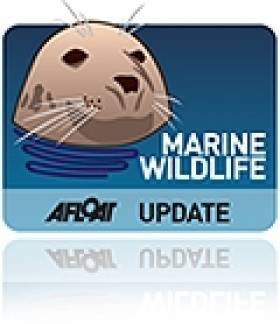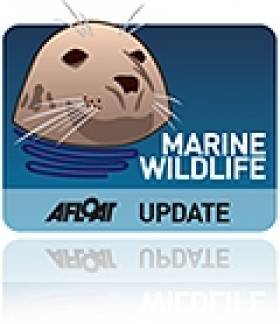Displaying items by tag: Andrew Malcolm
Fin Whale 'Feeding Frenzy' Off Hook Head
#MARINE WILDLIFE - A "feeding frenzy" involving a pod of fin whales was spotted off Hook Head in Co Wexford last week, The Irish Times reports.
And according to Andrew Malcolm of the Irish Whale and Dolphin Group (IWDG), two of the whales were in the same location almost exactly a year ago.
Malcolm, who was with a group on board the Rebecca C, used photographs of the whale's dorsal fins to compare records for the confirmation.
The pod of six fin whales was seen feeding some 3km southeast of Hook Head, attracted by the herring spawning grounds in the area.
More than 30 other cetaceans, including common dolphins, porpoises and a minke whale, were sighted on the trip.
The Irish Times has more on the story HERE.
New Humpback Whale in Irish Waters
The Irish Whale and Dolphin Group (IWDG) has reported the sighting of a humpback whale new to Irish waters.
Andrew Malcolm of the IWDG along with Martin Colfer spotted the whale just west of Dunmore East - a year after the first sightings of 'Hooky' who gave whale-watchers a treat in the early part of 2010.
Malcolm confirmed that this humpback was indeed a new addition to the Irish catalogue. He described it as behaving "in a very co-operative manner" and noted that it "regularly 'fluked' in front of the boat".
Click HERE for more on the story, including some spectaular images.































































